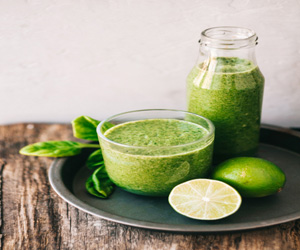


Mastering Efficiency In The Kitchen

In the hustle and bustle of modern life, time is a precious commodity. Finding the time to prepare delicious meals can often feel like an insurmountable challenge. Fortunately, quick cooking techniques have emerged as a savior for those seeking to balance the demands of work, family, and personal life while enjoying flavorful, homemade meals.
The Need For Quick Cooking
Quick cooking isn't just about convenience; it's a necessity in today's fast-paced world. People are constantly on the go, juggling multiple responsibilities, and long hours in the kitchen aren't always an option. This is where quick cooking comes to the rescue, offering a way to create tasty meals without the time commitment.
Benefits Of Quick Cooking
Here are some compelling reasons to embrace quick cooking:
1. Time Efficiency: The most obvious benefit is that quick cooking saves time. You can have a meal on the table in minutes, making it ideal for busy weeknights or when unexpected guests drop by.
2. Reduced Stress: Traditional cooking can be stressful, especially when time is limited. Quick cooking techniques minimize stress by simplifying the process and eliminating the need for elaborate preparations.
3. Fresh And Healthy: Quick cooking doesn't mean compromising on freshness and nutrition. With the right ingredients and techniques, you can create healthy and flavorful meals without spending hours in the kitchen.
4. Versatility: Quick cooking isn't limited to specific types of dishes. You can apply these techniques to a wide range of cuisines and recipes, from stir-fries and sheet pan dinners to simple salads and pasta dishes.
5. Minimal Cleanup: Many quick cooking recipes require fewer pots, pans, and utensils, resulting in less time spent on cleanup. This is a bonus for anyone who dreads the post-meal chore of washing dishes.
Getting Started With Quick Cooking
Ready to become a quick cooking maestro? Here's how to get started:
1. Plan Your Meals: Meal planning is essential for quick cooking success. Decide what you'll cook, gather all the necessary ingredients, and set up your workspace before you begin.
2. Prepped Ingredients: Save time by having prepped ingredients on hand. This includes pre-cut vegetables, marinated proteins, and sauces or dressings. Invest a little extra time in prepping on your day off to streamline your cooking throughout the week.
3. Simple Techniques: Embrace cooking methods like sautéing, stir-frying, grilling, and roasting, which are known for their speed. These methods help to seal in flavors and create delicious results in a short amount of time.
4. Follow Recipes: As you become more comfortable with quick cooking, you can start experimenting with your own creations. However, for beginners, following recipes is a great way to get the hang of the process and perfect your skills.
5. Stay Organized: Keep your kitchen organized and clean as you cook. This will make the process smoother and more enjoyable.
Quick cooking is a lifeline for anyone seeking to balance a busy life while savoring the joys of homemade cuisine. With the right techniques, planning, and a little bit of practice, you can create delicious meals in a fraction of the time it traditionally takes. Whether you're a working professional, a parent with a busy family, or simply someone who values their time, quick cooking is a culinary solution that makes mealtime efficient, enjoyable, and undeniably delicious.
Elevating Your Culinary Experience
 Time Efficiency: One of the most significant benefits of simplified cooking is the time it saves. By using shortcuts, pre-prepped ingredients, and easy-to-follow recipes, you can have a tasty meal on the table in no time. This is particularly valuable for busy individuals and families with packed schedules.
Time Efficiency: One of the most significant benefits of simplified cooking is the time it saves. By using shortcuts, pre-prepped ingredients, and easy-to-follow recipes, you can have a tasty meal on the table in no time. This is particularly valuable for busy individuals and families with packed schedules.
Minimal Ingredients: Simplified cooking often relies on a shorter list of ingredients. You don't need a pantry full of exotic spices and specialty items. Instead, you can create flavorful dishes with basic staples, reducing both cost and clutter in your kitchen.
Versatility: Simplified cooking doesn't mean boring or repetitive meals. With some creativity, you can adapt simple recipes to your tastes by adding or substituting ingredients. This flexibility encourages experimentation and the discovery of new favorite dishes.
Health Benefits: Many simplified cooking techniques emphasize fresh, whole ingredients. You'll have better control over what goes into your meals, making it easier to create nutritious options that fit your dietary preferences.
A Delicious Journey Back To The Source
 Support For Local Farmers: Farm-to-table dining supports local farmers and strengthens the regional economy. Local farmers are often small-scale, family-owned businesses, and by purchasing their produce, consumers help maintain the livelihood of these farmers.
Support For Local Farmers: Farm-to-table dining supports local farmers and strengthens the regional economy. Local farmers are often small-scale, family-owned businesses, and by purchasing their produce, consumers help maintain the livelihood of these farmers.
Sustainability: The farm-to-table movement champions sustainability in agriculture. Farmers who engage in this practice tend to use eco-friendly, responsible farming methods that prioritize soil health, reduce the use of harmful chemicals, and minimize carbon emissions associated with food transportation.
A Culinary Journey Through Your Backyard
 Flavorful Benefits:
Flavorful Benefits:
One of the most immediate and compelling benefits of homegrown flavors is the enhancement of taste. Here are a few reasons why homegrown produce tastes better:
Ripeness: Homegrown produce is harvested when it's perfectly ripe, ensuring that you experience the fullest, most vibrant flavors.
Nutrient Density: The time and care you invest in your homegrown produce can lead to higher nutrient content, contributing to more intense and wholesome flavors.
Variety: You have the freedom to choose a wide variety of fruits, vegetables, and herbs that may not be available at your local grocery store, diversifying your palate.
Unique Varietals: Experimenting with different heirloom or unusual plant varieties can lead to exceptional and distinctive flavors that are hard to find elsewhere.
A Sustainable Choice: Homegrown flavors align with the principles of sustainability and environmental responsibility. When you grow your own produce, you reduce your carbon footprint, as there are no transportation or packaging requirements. Additionally, you have the flexibility to practice organic and eco-friendly gardening, reducing the use of harmful chemicals and conserving resources.
A Recipe For A Better Tomorrow
 Supporting Local Farmers: By choosing locally sourced products, we bolster the livelihood of farmers in our communities. These farmers often employ sustainable farming practices, which protect the environment while producing high-quality, fresh food. Supporting local agriculture helps to keep family farms in business, preserving the rural way of life and ensuring a reliable source of food close to home.
Supporting Local Farmers: By choosing locally sourced products, we bolster the livelihood of farmers in our communities. These farmers often employ sustainable farming practices, which protect the environment while producing high-quality, fresh food. Supporting local agriculture helps to keep family farms in business, preserving the rural way of life and ensuring a reliable source of food close to home.
Reducing Environmental Footprint: Transporting food over long distances generates a significant carbon footprint. Local and sustainable choices mean that the journey from farm to table is shorter, reducing the environmental impact of our food consumption. Additionally, sustainable farming practices, such as organic farming and regenerative agriculture, minimize the use of harmful chemicals and prioritize soil health, further lessening environmental harm.
Preserving Biodiversity: Local and sustainable agriculture often focuses on heirloom and traditional varieties of crops and livestock.
A Recipe For Health And Sustainability
 Health Benefits: Organic cooking prioritizes the quality and nutritional value of ingredients. Here are some key health benefits associated with organic cooking:
Health Benefits: Organic cooking prioritizes the quality and nutritional value of ingredients. Here are some key health benefits associated with organic cooking:
Nutrient-Rich Ingredients: Organically grown foods tend to be richer in essential nutrients, such as vitamins, minerals, and antioxidants. This means that meals prepared with organic ingredients can provide a more substantial nutritional punch.
Avoiding Harmful Chemicals: Organic cooking eliminates the risk of ingesting synthetic pesticides and herbicides commonly found on conventionally grown produce. These chemicals have been linked to various health issues, making organic options a healthier choice.
Reduced Exposure To Antibiotics And Hormones: Organic meats and dairy products come from animals that are raised without antibiotics and synthetic hormones. By consuming organic animal products, you reduce your exposure to these potentially harmful substances.
Embracing A Gluten-Free Lifestyle
 Treatment With A Gluten-Free Diet
Treatment With A Gluten-Free Diet
The cornerstone of celiac disease treatment is the complete elimination of gluten from the diet. A gluten-free diet helps to prevent the autoimmune response and allows the small intestine to heal. When followed diligently, it can lead to symptom resolution and improved overall health.
Challenges Of A Gluten-Free Lifestyle
While a gluten-free diet is the only effective treatment for celiac disease, it presents numerous challenges:
Label Reading: Learning to decipher food labels and identify sources of hidden gluten can be overwhelming.
Cross-Contamination: Avoiding cross-contamination is crucial, as even trace amounts of gluten can trigger symptoms.
Social Situations: Navigating social gatherings and dining out can be challenging, as it often requires clear communication about dietary restrictions.
A Comprehensive Approach To Health And Well-Being
 Physical wellness is often the aspect of holistic health that people are most familiar with. It encompasses regular exercise, a balanced diet, and adequate sleep. Physical wellness aims to keep the body in optimal condition, making it less susceptible to illnesses and promoting longevity.
Physical wellness is often the aspect of holistic health that people are most familiar with. It encompasses regular exercise, a balanced diet, and adequate sleep. Physical wellness aims to keep the body in optimal condition, making it less susceptible to illnesses and promoting longevity.
Exercise is not just about maintaining an ideal weight; it also has profound effects on mental health. Regular physical activity can reduce stress, improve mood, and boost self-esteem. A holistic approach to physical wellness also includes practices like yoga and meditation, which promote flexibility, balance, and inner calm.
Mental And Emotional Well-Being
Mental and emotional wellness are essential components of holistic well-being. Our minds are powerful, and the thoughts and emotions we experience can significantly impact our overall health. Stress management, mindfulness, and positive thinking are integral to this aspect of holistic wellness.
Practices like meditation and mindfulness allow us to become more aware of our thoughts and feelings, fostering emotional resilience and a greater capacity to handle life's challenges. Cultivating emotional intelligence can improve relationships and enhance our overall quality of life.
Social Relationships
Our connections with others play a vital role in our well-being. Holistic wellness emphasizes the importance of nurturing healthy relationships. Strong social connections contribute to a sense of belonging and emotional support, which can help us navigate life's ups and downs.
Sip Your Way To Health And Vitality
 Hydration And Wellness
Hydration And Wellness
Nourishing drinks, such as herbal teas, infused waters, and fresh fruit juices, help keep your body hydrated. Proper hydration is fundamental to overall health, as it supports digestion, detoxification, and cellular function. Staying well-hydrated is often the first step towards feeling energetic and vibrant.
Digestive Support
Many nourishing drinks are designed to promote healthy digestion. For example, a warm cup of herbal tea or a ginger-infused elixir can soothe the stomach and relieve indigestion. Probiotic-rich drinks like kefir and kombucha enhance gut health by introducing beneficial bacteria, which can aid in digestion and boost the immune system.
Antioxidant Power
Antioxidants play a vital role in protecting the body from oxidative stress and preventing cell damage. Nourishing drinks, particularly those made from dark leafy greens, berries, and other antioxidant-rich foods, offer a delightful way to boost your body's defense mechanisms.
Customization And Variety
The versatility of nourishing drinks is another significant advantage. You can personalize your beverages to suit your preferences and dietary needs. Whether you desire a green smoothie packed with spinach, a creamy nut milk for added protein, or a rejuvenating herbal infusion, the possibilities are endless.